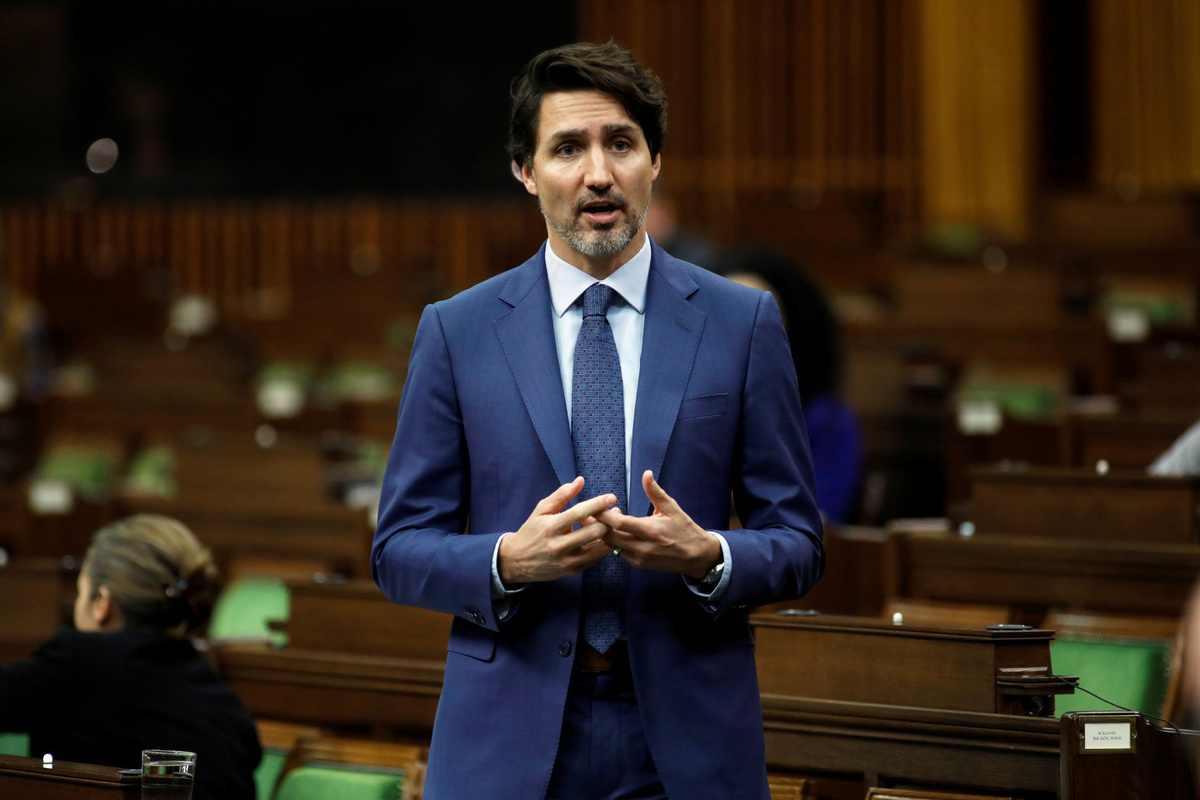
Canada's Prime Minister Justin Trudeau speaks in the House of Commons as legislators convene to give the government power to inject billions of dollars in emergency cash to help individuals and businesses through the economic crunch caused by the COVID-19 outbreak, on Parliament Hill in Ottawa, Ontario, Canada, April 11, 2020. (Photo: Agencies)
OTTAWA - Canadian Prime Minister Justin Trudeau announced on Tuesday that from Wednesday midnight, anyone arriving in Canada with no "credible" plan to self-isolate for the mandatory 14-day period will be forced to spend that time being quarantined in a hotel.
At his Tuesday's press conference on the COVID-19 crisis, Trudeau said the order applies to everyone, regardless of whether they demonstrate any symptoms of the disease.
An "inadequate" plan, Trudeau explained, would be one where a traveler plans to "stay in a place where there are many elderly family members" or whether someone does not have a "set destination."
Under an emergency order activated by the Canadian government under Canada's Quarantine Act on March 25, anyone failing to comply could face a fine of up to $540,000 and/or six months in prison.
If a person is found to have caused "a risk of imminent death or serious bodily harm to another person while willfully or recklessly contravening" the law or the regulations, he or she could face a maximum 720,000-dollar fine, and/or up to three years in prison.
But the quarantine legislation does not capture the major harm being caused in Canada toward its seniors -- particularly those living in long-term care facilities where residents account for about one in two COVID-19 deaths across Canada.
In the country's largest province of Ontario, where the state of emergency has been extended by 28 days to May 12, the provincial government will re-deploy healthcare staff from hospitals to nursing homes when there is a COVID-19 outbreak and, as of Tuesday, will only allow personal support workers to be based at only one long-term care center at any time, to reduce transmission of the virus.
Currently, 114 nursing homes, or about 14 percent of the 626 in Ontario, have residents who have tested positive for COVID-19.
The COVID-19 health crisis playing out in Canada has also hit the country's economy hard.
In its bleak World Economic Outlook report released on Tuesday, which compares the current "Great Lockdown" of the global economy with the Great Depression of the 1930s, the International Monetary Fund expects Canada to experience a 6.2-percent contraction this year followed by 4.2-percent growth in 2021.
As for when businesses shuttered during the COVID-19 crisis will reopen, Trudeau said on Tuesday that it will be weeks from now and done in phases.
"We recognize that different regions of the country are in different places along the evolution of their COVID-19 curve," he said. "We're going to make sure that we try to stay coordinated as best as possible, but those discussions are ongoing about how we're going to reopen the economy."
As of Tuesday evening, there were 27,046 confirmed COVID-19 cases in Canada with 903 deaths, according to the country's Public Health Agency, which earlier in the day reported 823 deaths.


